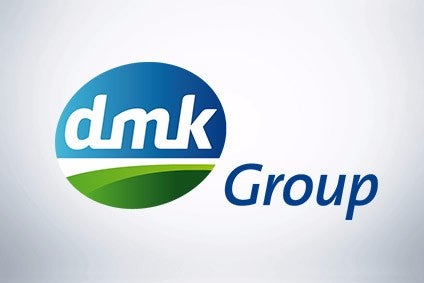
DMK, Germany’s largest dairy cooperative, has revealed a mission statement for the next decade.
It said its Vision 2030 plan continues the “realignment towards being a clear customer and consumer-based food producer, which started in the summer of 2017”.

Discover B2B Marketing That Performs
Combine business intelligence and editorial excellence to reach engaged professionals across 36 leading media platforms.
Speaking as the business revealed annual sales in 2018 of EUR5.6bn (US$6.27), down slightly from EUR5.8bn in 2017, chief executive officer Ingo Müller said the restructuring “represents a huge change in the corporate culture”.
Müller said DMK’s vision takes into account changing nutritional trends in which issues such as sustainability in animal welfare and environmental protection, regionality and convenience have come to the fore.
“A key factor when it comes to change is time. We know that DMK has often asked a lot of its farmers in the past. At the same time, we know that fundamental reorganisation like that which we’re currently undergoing doesn’t happen overnight,” he said.
“As well as basic organisational measures for one of the biggest food producers in Germany, the restructuring also represents a huge change in the corporate culture. We have an ambitious plan for both of these factors, which we also have to implement with due care to ensure that DMK can reach its full potential. The first phase, which was shaped by investments in the future, has almost come to a close. Now it’s about benefiting from the effects in a targeted way.”

US Tariffs are shifting - will you react or anticipate?
Don’t let policy changes catch you off guard. Stay proactive with real-time data and expert analysis.
By GlobalDataMüller said DMK is making changes in a number of areas: focusing on the consumer, withdrawing from selected business areas and defining clear roles for each remaining business area, changing from being a volume player in the dairy industry to being a provider of selected natural products, refining international activities into Europe – the home market – and beyond and looking at adjacent attractive food and drink sectors which might constitute future sources of income, such as plant-based alternatives.
Perhaps referring to this last point, Müller said: “For a traditional company like DMK, it can’t be a no-go for the future. If you look at global developments, you quickly realise two things. Firstly, milk alone will no longer be enough to feed the growing population. Then secondly, consumers are already looking for alternatives for a variety of reasons. Ignoring this would be negligent.”
DMK has around 7,700 employees at more than 20 locations in Germany, the Netherlands and elsewhere. In March, it acquired local baby food firm Alete.





